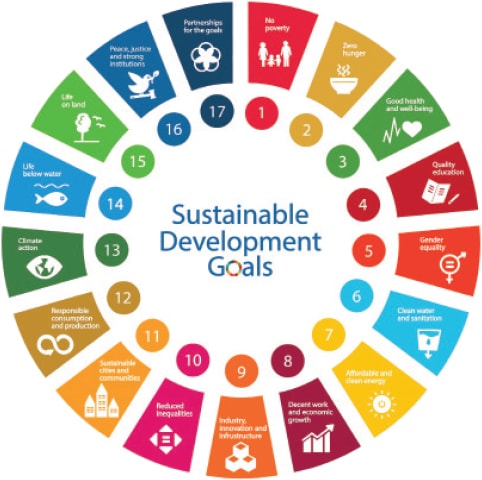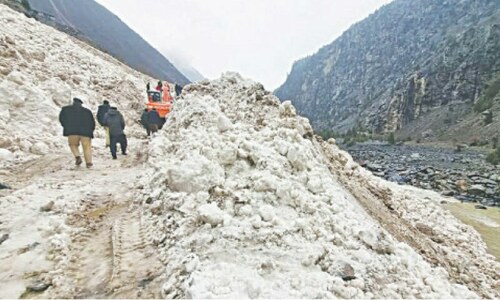
The news of Pakistan's better ranking on the United Nations Sustainable Development Goals (SDG) index was lost on citizens haunted by horrifying images of a suffering population uprooted by floods, worries of budgeting the price hike and erosion of the value of their wealth owing to the rupee devaluation. This is at the top of an uncertain future that stares them in the face amidst the high political temperature.
Pakistan scored 59.3 and improved its ranking to 125 from 129 last year, closing the gap with India at 121. Other regional nations, Bangladesh, Sri Lanka and Iran, are ahead on the UN Index ranked at 104, 76 and 88 respectively.
According to the UN SDGs dashboard, Pakistan has been assessed to be on track on three out of 17 goals, moderately improving in four and stagnating in the remaining 11. The country is shown to be progressing satisfactorily on the 10th (reducing inequities), 12th (responsible consumption and production) and 13th (climate action).
Pakistan is progressing not ideally but at a rate sufficient to hit the target on the 6th goal (clean water and sanitation), 8th (decent work and economic growth), 14th (life below water) and 16th (peace, justice and strong institutions). Sadly, on all others 1st (no poverty), 2nd (zero hunger), 3rd (good health and wellbeing), 4th (quality education), 5th (gender equality), 7th (affordable and clean energy), 9th (industry, innovation and infrastructure), 11th (sustainable cities and communities), 15th (life on land), 17th (partnerships for the goals) this nation is said to be stagnating which means that the pace of progress is less than 50 per cent of the required rate.
Despite the improvement in Pakistan’s ranking on the UN SDG index, there is a lack of public pressure necessary to keep the government on course owing to inadequate awareness
With the corporate sector relatively sensitised, parliamentarians involved in multiple SDGs monitoring committees and provincial SDG units mobilised, the level of awareness did improve. However, it is still low among the public, which is just busy surviving.
Politics tend to dominate media coverage and consumes the public attention. The key component, public pressure, necessary to keep the government on the course is still lacking in Pakistan.
A top official in the ministry said: "All the assemblies, national and provincial, have a task force on SDGs. Every task force has more than 25 members. The Pakistan Institute of Parliamentary Services (PIPS) and non-governmental organisations hold capacity-building workshops on different dimensions of global goals. This has helped educate legislators on SDGs and their value for their constituents".
However, a favourable UN report card has instilled confidence in the government hierarchy that considers results vindicating their policies. Muhammad Ali Kemal, Chief of SDGs, responded to queries in this regard, "We are strengthening the institutional framework along with data reporting, monitoring the targets closely and mainstreaming goals into policies.
"We have presented Pakistan's second Voluntary National Report (VNR) at the UN high level political forum (HLPF) with positive externalities. These include a reminder of the distance covered and what needs to be done to deliver on the promise. During VNR consultations, we were able to meet other stakeholders and get a better insight of their interventions.
"Gender policy framework is another landmark achievement that included the development of gender empowerment indicators. Food security dashboard, enhancement in social protection policies, increase in health budget, green Pakistan and billion trees tsunami, improvement in financial governance especially under the Financial Action Task Force guidelines are other highlights of the last year.
"The government approved district development plans for least developed areas per Multidimensional Poverty Index and provided support for it in the Public Sector Development Programme. It allows equity-based investment in the most backward districts of Pakistan, following the principle of 'farthest behind first'.
On a question regarding the contribution of the corporate sector to performance on SDGs, Mr Kemal was not impressed. "They have tagged their corporate social responsibility activities as spending on SDGs, but compliance related components are still missing".
He admitted that the pace of progress is slow but blamed Covid, recent floods and the sudden change in political setup for it.
He thought improving policy implementation, compliance, and greater awareness could further enhance Pakistan's prospects. "There are targets that do not need huge funding. They can be achieved by improving the quality of governance and use of social capital".
Ahsan Iqbal, federal minister for planning, was approached for comments, but his response didn't arrive till the filing of the report.
After the termination of the eight Millennium Development Goals in 2015, the United Nations adopted the more comprehensive 17 Sustainable Development Goals to set the global agenda for the next 15 years. The UN asserts: "Five key messages precede these goals to illustrate their inextricable linkage: the '5Ps': People, Planet, Prosperity, Peace, Partnership".
Published in Dawn, The Business and Finance Weekly, September 26th, 2022













































